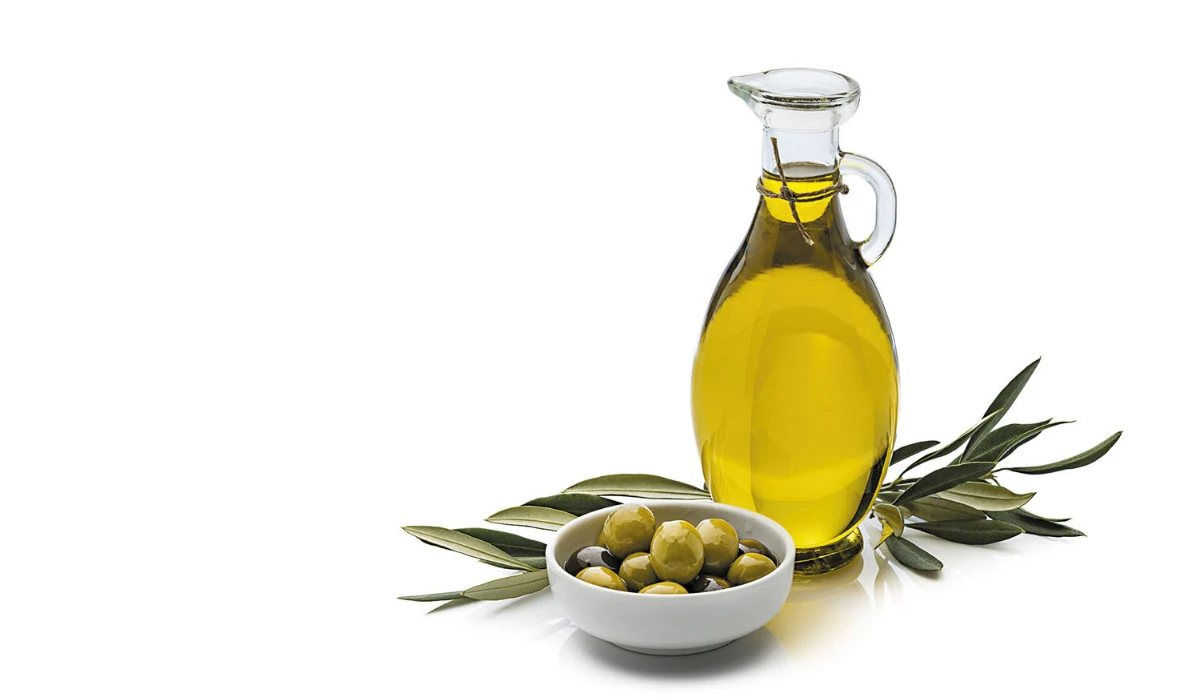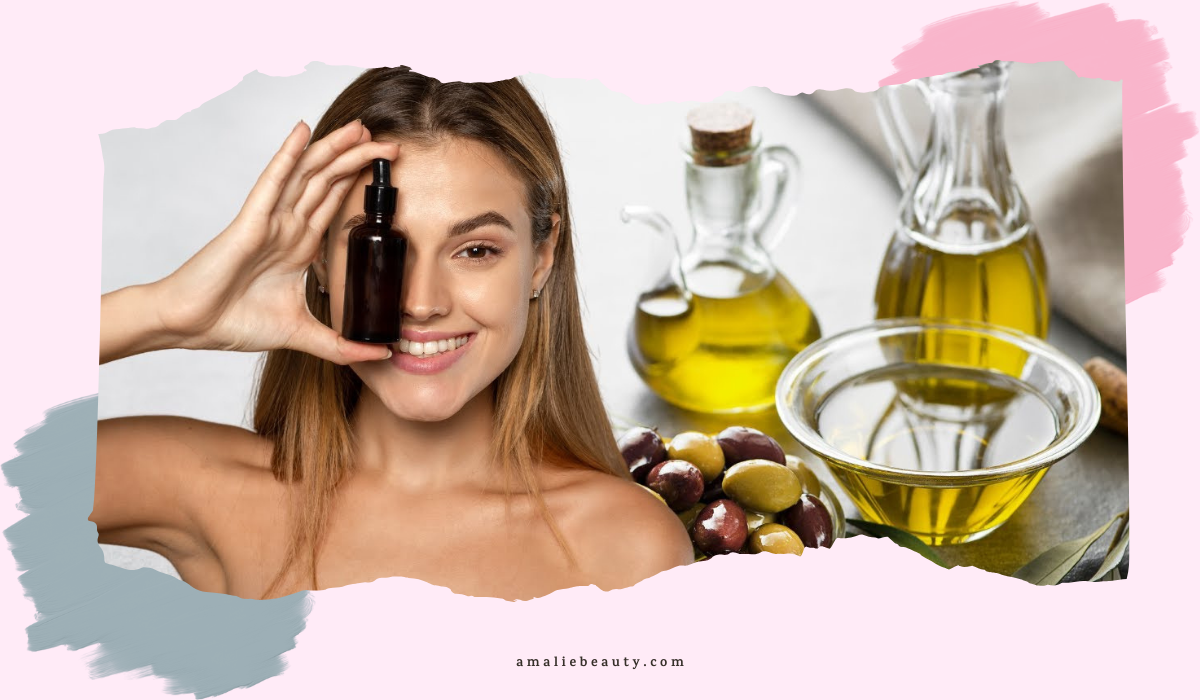Olive oil is one such pantry staple that offers a plethora of nutritional benefits to the people and has been used for centuries. You might be aware of this amazing oil due to its culinary use and stunning automatic flavor. Talking about its nutritional values, it is known to provide monosaturated acid and various other vitamins and antioxidants to promote health.
But the question here arises, can you use this oil directly on your skin? Do applying on the skin can prompt the same benefits as you consume it? In this regard, we have provided all the information about the impact of olive oil on the skin.
Is Olive Oil Good For Skin?

As we have discussed earlier, olive oils are rich in monosaturated fatty acids and antioxidants as well. This means it contains excellent moisturizing properties that help nourish extremely dry or compromised skin. You can use this oil especially when your skin becomes dry during the cold weather months.
You might be thinking about how beneficial olive oil is in cold weather. Well, you have to understand that skin contains a natural liquid barrier that tends to evaporate in the cold season. In this situation, monosaturated fats act as a second barrier when applied to cracked or dry skin in winter.
So, the answer to your question is that olive oil can be a great way to treat your dry skin and even protect it from sunburn. Other than these healthy fats, the oil also contains various other nutrients that contribute to promoting healthy skin.
What Are The Nutritional Content In Olive Oil?
Other than monosaturated fats and antioxidant properties, olive oil also contains some other nutrients that help to maintain healthy skin. It is packed with vitamins and minerals that promote a healthier-looking and well-toned skin. To better understand its nutritional content, it is essential to know the type of olive oil available in the market.
There are four main types, namely extra virgin olive oil, virgin olive oil, pure olive oil, and light version of olive oil. Among them, extra verging olive oil is considered the best for the skin as it is made with a cold-pressed technique. This means they have zero chemical additives that contain folic acid, which is used to moisturize the skin, the same as monosaturated fats.
Other than these components, the oil is also packed with vitamin E, which protects the skin cells from free radicals and helps boost immunity. Moreover, extra virgin olive oil also contains micrograms of vitamin K, which plays a crucial role in preventing blood clotting. Additionally, this nutrient is also helpful in improving other bodily functions like bone metabolism and mineralization.
In addition to these vitamins, the oil is packed with various minerals, including iron, magnesium, and potassium, which contribute to healthy skin. Therefore, it is completely safe for the skin and can provide various health benefits that we have discussed in the next section.
How Does Olive Oil Benefit The Skin?
You might have understood that olive oil is packed with various nutrients that contribute to the skin in its way. So, let’s find out how beneficial it is when applied directly to the skin and how it protects from harmful effects.
- First of all, the monosaturated fat provides moisture to dry skin, and Vitamin E helps to observe and retain water.
- Second, olive oil also helps to combat oxidative stress and increases the collagen in the skin, which promotes healthy and toned skin.
- Additionally, extra virgin olive oil aids in faster wound healing due to the presence of anti-inflammatory and antimicrobial properties.
- The oils are also helpful in double cleansing, which means you can use them to clean oil, dirt, and makeup at the same time.
However, you can find several benefits that can contribute to maintaining healthy skin. At the same time, it is also essential to consider whether it contains any side effects. To learn more, you can check out the next section that we have mentioned below.
Side Effects Of Olive Oil On Skin
Here, you have to note that the excess use of anything can potentially cause harm. The same thing is applied with olive oil, where the overuse of oil on the skin can lead to clogged pores and acne. Additionally, applying too much olive oil on your body or face can damage the skin barrier and promote various sensitive issues.
In general, oil can be very beneficial if used in the right amount and at the right time. Therefore, it is essential to know the proper use of extra virgin olive oil to opt for the best of it and gain healthy skin.
How To Use Olive Oil For Skin In An Effective Way?
To use olive oil effectively, it is essential to apply the right amount to avoid any side effects. Therefore, it is recommended to apply the oil on your skiing within three minutes after you have a shower. If you are thinking of using it as a moisturizer, make sure to choose a good quality extra virgin olive oil.
Before applying it to your skin, you must clean dirt properly from your body and face and open the pores. After that, take a little olive oil and apply it to the respective place. Don’t forget to wipe out the extra oil with a clean towel to prevent clogging of your skin pores.
Final Words
Extra virgin olive oil promotes potential skin benefits if applied with the correct methods. It provides various nutrients and minerals, including monosaturated fats that provide moisture to dry skin. Additionally, oil is also packed with antioxidant and anti-inflammatory properties that protect against harmful effects and heal wounds faster.
But make sure to use it the right amount, as excess use can result in clogged pores and acne in your face. To use it effectively, you can take a little olive oil in your face and skin and wipe out the excess oil with a clean towel within three minutes after showering.
References:
- Reinke J.M., Sorg H. Wound Repair and Regeneration. Eur. Surg. Res. 2012;49:35–43. doi: 10.1159/000339613. [PubMed]
- Breslin, P. A. S., Gingerich, T. N. & Green, B. G. Chem. Sens. 26, 55–66 (2001).

